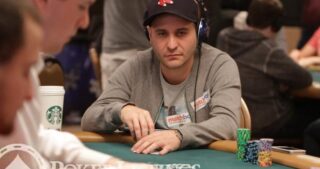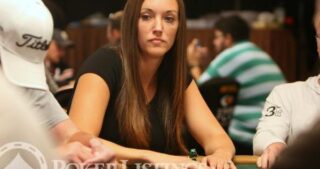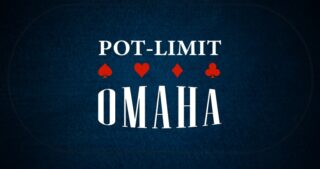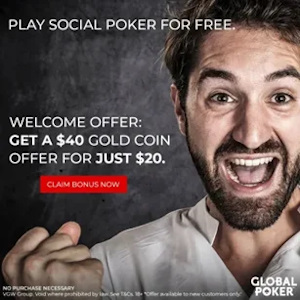- PokerListings »
- Poker Strategy »
- Poker Psychology »
- The Psychology of Poker: Double-Checking Your Hole Cards
The Psychology of Poker: Double-Checking Your Hole Cards
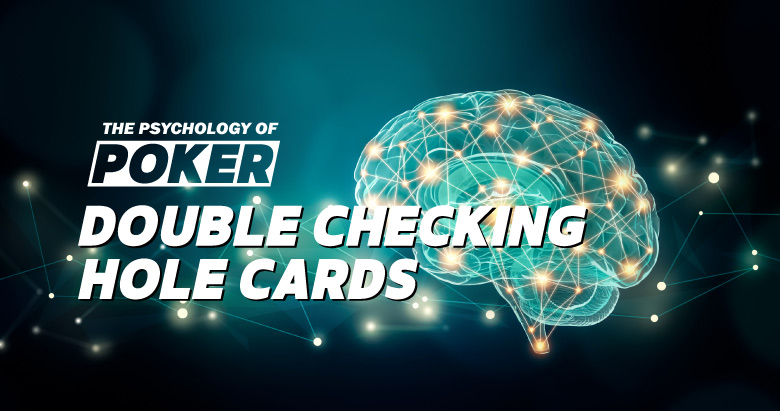
When playing live poker, you play poker in an arena where giving away information through poker tells can be huge in who wins the hand.
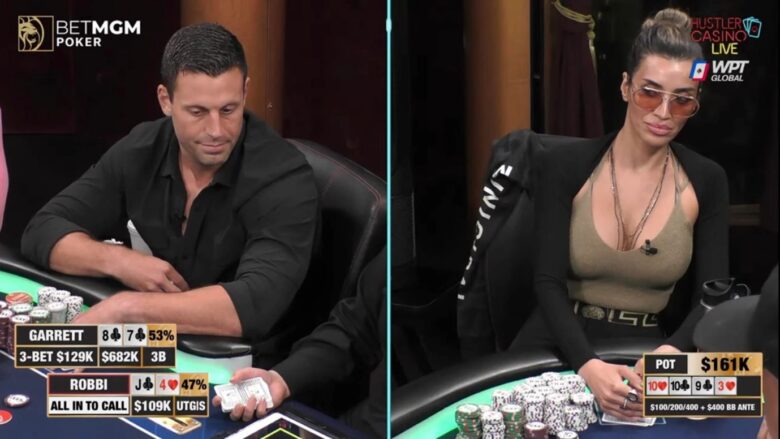
What is a Poker Tell?
Poker tells are essential things you may do or say in a poker hand that can give away information in the hand. Whether your poker tells gives others information about your hand or your next action, it can swing the balance in your opponent's favor if they recognize them.
The very best poker players are the ones that can spot tells in their opponents and use them to gain an advantage in the hand; if they spot weakness, they will put on pressure by betting and raising, if they see strength, they will find big folds by laying down premiums and good hands.
It is always important to note as a poker player that relying on tells is very bad - they are not always reliable and some clever players may be able to work around a poker tell, reconstructing it to deliberately look a certain way and not reveal the strength of their poker hand.
Double-Checking Your Hole Cards in Poker
A common poker tell you will see during live poker tournaments or cash games is double-checking hole cards. This is when a poker player, during the middle of the hand, will look back at their hole cards to reaffirm what they are.
Checking hole cards again can be done for so many reasons, whether it is done purposefully or for deception. One likely reason could be that the poker player is genuinely unsure of their hand - maybe they want to double-check to see if their hand is a certain suit or combination, especially if the board texture changes heavily.
What Kind of Poker Tell is Double-Checking Hole Cards?
You might be able to use this a tell when a flush is either on the flop or turn - a weaker live poker player will sometimes forget the suits of their hole cards but remember they are off-suit, so they will check them to see if either of the suits could make a flush.
This is a good poker tell in the middle of the hand for a good poker player, knowing that the reason their opponent has double-checked their hole cards is due to their hand being off-suit. It is much easier to remember a suited poker hand than an off-suit one. Linking back to the point about poker tells being incorrect or deceptive, you should always remember this for double-checking hole cards. A player who has an incredibly strong hand but is very dramatic might look to feign weakness or indecision - they will act confused with their hand and double-check the cards, this is also known as ‘hollywooding’ in poker.
Double-Checking Your Poker Hole Cards Is Not Good
Overall, I would look at someone double-checking their hole cards as a weak poker tell, as you usually find players who have a big hand looking very indifferent and unmoving - another slight tell that can infer a player has strength and does not want to get any attention on them.
If someone has made a huge bet, however, the tell can change. This could mean that the player is incredibly relaxed and at ease with their position, meaning their hand is very strong. If a poker player goes all-in on the river and then double-checks their hole cards, it would be a brazen move if they are bluffing - the last thing they would want to do is show weakness. This also shows that this is quite an unreliable poker tell, with not much science or evidence behind it, so use it at your own risk when you’re playing at the poker tables.
Conclusion: Use at Your Own Risk
Some poker tells that will be shown during this series have clear evidence and backing - you can use these and be pretty confident that they have genuine reasoning. Double-checking poker hole cards is unfortunately one that is tough to pinpoint.
Most often, double-checking hole cards without significant action is weak, showing the player is unsure of their hand and the strength of it - they need to check them again to see what equity they have in the hand.
The act of double-checking your hand after a significant bet or raise can be a surefire sign of strength - it is not advised to see this and perceive weakness in this scenario, nor is it recommended to do it yourself as a way to gain more action; you will more than likely scare off your customer.





